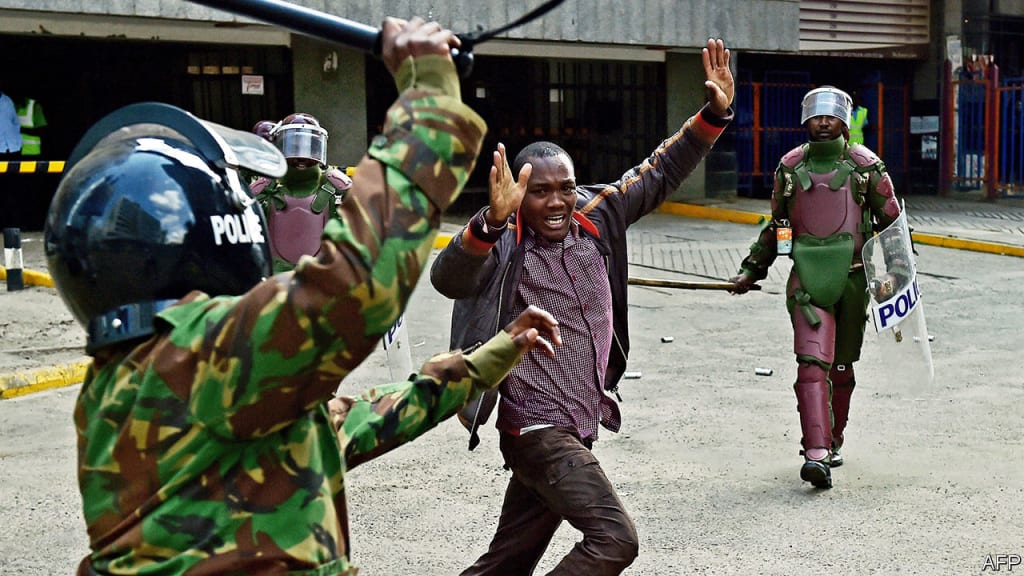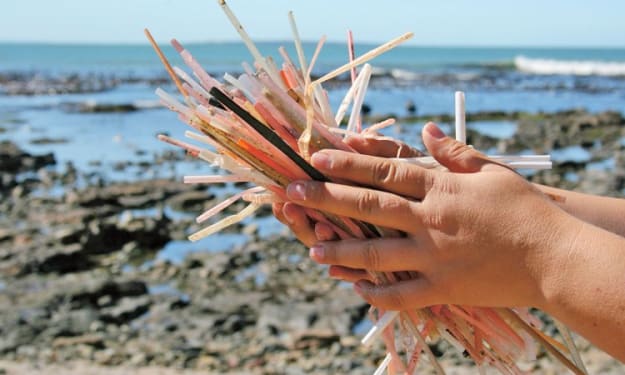Police Brutality: What Fuels Police Militarization and Brutality in Kenya?
Our law enforcers are characterized by the use of military tactics and equipment and a culture of inhumanity and intolerance.

The primary duty of the Kenya Police Service is to guard the public against criminal wrongdoers and, when the need arises, restore civil order. Ideally, they should respect the moral dignity of every Kenyan regardless of age, gender, religion, tribe, race, or political affiliation. But that is not always the case. Our law enforcers are characterized by the use of military tactics and equipment, and a culture of inhumanity and intolerance. The danger of this unfortunate trend is that it jeopardizes the legitimacy and trust that Kenyans have towards the law enforcers. But as much as we have a right to demand better policing from our officers, we should also interrogate the role we play as a society, including the policy makers we elect, in making our police so brutal. Here are 5 factors that I feel have fueled police militarization, brutality, and inhumanity in Kenya:
1. A flawed recruitment and training process
It is a miracle that our laughable police recruitment process produces diligent officers, if at all. I mean, this is the only profession where having all 32 teeth is a weightier qualification than having good high school grades. It is the only training in which mastering the use of military equipment is a greater achievement than mastering the art of public relation and community development. It is good to have police recruits who are passionate about and capable of fighting the “bad guys”, but we need more community-minded people joining the police service.
2. We look upon our officers as soldiers
Kenyans engage the cops in unnecessary battles day in, day out to a point where most cops now behave like soldiers. We only demand accountability from our officers when things go grievously wrong, otherwise we are always ready to “negotiate” with perceived rogue officers the military style. I mean, if you are okay with civilians roughing up or throwing stones at uniformed officers, I don’t see why you’d feel offended when the officers treat civilians like terrorists.
3. Poor parenting
We are very good at blaming “others” for our woes, whatever or whoever that "others" might be for us. We teach our kids not to give “others” the benefit of doubt in case of a misunderstanding or conflict. We all have some aggression within us; a dark side that we pass to our kids. These are the same kids we then train to become law enforcers, and the same kids we hope will become responsible citizens. The result is total disaster! And because police officers are highly sensitive to signs of danger, they sometimes feel threatened by the physical appearance and demeanor of “others”, they more often than not attack without thinking things through.
4. Politicization of the police service
Police officers in Kenya are extremely conservative when it comes to politics and politicians. They silence whoever the government of the day wants silenced, no matter how illegal or immoral that could be. And because Kenya’s political field is so ethnicized, civilians are okay when the police use excessive force against the “enemy” tribe or against the supporters of the “wrong” political party. We only complain when the monster we so consistently feed and passionately cheer for turns against us.
5. There are so many dishonest people in Kenya
In their line of work, police officers interact with so many dishonest and corrupt civilians and senior government officials, and that makes them develop a cynicism toward people. We lie all the time, give bribes, and do all sorts of evil and then call on the police to clear our mess. That transforms them into authoritarian personalities who believe that everyone is corrupt and dishonest. They will harass and brutalize you in an effort to shake out the truth from you, even when you have laid it out for any reasonable person to see.
Conclusion
As a nation, we must redesign the training and standards of our police officers, just like we have done with teachers and health care professionals. For example; the use of force and arrest should be the last and least desirable method of maintaining law and order. We also need to train our kids how to become responsible, patriotic, and tolerant adults. That is how we will have police officers that are reluctant to brutalize civilians, and civilians who are committed to making police work easier and desirable.






Comments
There are no comments for this story
Be the first to respond and start the conversation.